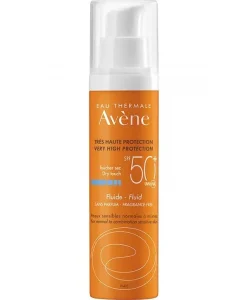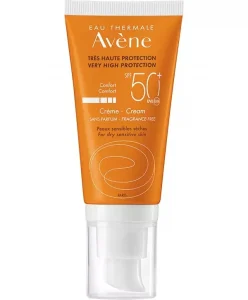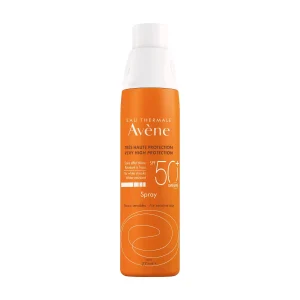
With the heat of summer, more and more of us are spending time outdoors. As you make plans for the pool, beach, or other outdoor activities, we want to stress the importance of using sunscreen to protect against sun damage and potential skin cancers. This message is especially important for men. Despite their increased risk of developing melanoma, many men are not willing to use sunscreen every day. Why is that? We’ll find out in this article from The Dermo Lab in collaboration with the dermatologist Dr. Shaimaa Abd Al Mujeed, who discusses the importance of wearing sun protection cream for men.
Why do men skip sunscreen?
Melanoma accounts for about one percent of all skin cancers, but it is responsible for the vast majority of deaths from this type of cancer. The risk of being diagnosed with melanoma increases with age, but it is also one of the most common cancers in young adults. The majority of new cases of melanoma occur in white men over the age of 55, but the cancer is also common in women aged 50 or younger. According to the American Cancer Society, nearly twice as many men as women will die from melanoma.
This could be due to the fact that women take a more proactive approach to skin care in general. Men, unfortunately, don’t always pay as much attention to their skin and are less likely to seek medical attention if something suspicious appears on any part of their body.
For some, it may be an image issue. They see sunscreen as a “feminine” beauty product. Others think they don’t need it. A survey revealed that nearly two-thirds of men think that women’s skin is more sensitive to ultraviolet (UV) rays. In reality, men’s skin is more sensitive to UV damage than women’s. Men also tend to be less informed than women about the dangers of sun exposure.
Yet sunscreen and skin care should be an important part of everyone’s routine, regardless of gender. Men need to protect themselves from the sun, by using sunscreen correctly and applying it carefully.
Keep reading to learn how to protect your skin from the sun and the importance of sun protection.
What are the sun protection tips for men?
You should know that the numbers for skin cancer risk in men are shocking. So, it’s important for men of all ages to protect their skin and see a dermatologist if they notice any changes in their skin. Below are tips to help men better protect their skin from sun damage and prevent skin cancer.
1 – Wear sunscreen daily
Many of us spend the majority of our time indoors. While this greatly reduces the risk of skin damage from sun exposure, it doesn’t completely eliminate the risk. Even inside our cars, homes, and office buildings, certain types of UV rays can reach our skin through windows. A daily sunscreen should be applied to the parts of the body that will be exposed to the sun’s rays (face, head, neck, arms, hands, etc.). Dr. Shaimaa Abd Al Mujeed recommends applying sunscreen at least every two to three hours.
2 – Choose the right sun protection factor (SPF)
In addition to choosing the right sunscreen for your skin type, you need to choose the right sun protection factor (SPF). Dr. Shaimaa Abd Al Mujeed says that according to the American Academy of Dermatology, the best sun protection for men has an SPF of 30 or higher. She explains that a sunscreen with SPF 30 will protect you from about 96.7 percent of UVB rays, while SPF 50 means protection from about 98 percent of UVB rays.
3- Use a broad-spectrum sunscreen
Sunlight consists of two types of ultraviolet (UV) rays: UVA and UVB. Both UVA and UVB can damage the skin, but UVB is the main source of damage leading to sunburn and skin cancer. Since both UVA and UVB rays can damage the skin, you will need a sunscreen that protects against both. The “SPF” of sunscreen only indicates the level of protection against UVB. The “broad spectrum” on your sunscreen bottle indicates that it also protects against UVA.
Below are the 3 best sunscreens to apply for optimal protection.
For normal to combination skin:
Eau Thermale Avène Very High Protection Fluid SPF 50+
For dry skin:
Eau Thermale Avène Very High Protection Cream SPF50+
For the body:
Eau Thermale Avène High Sun Protection Spray SPF 50+
4 – Know the areas that need extra coverage
Any part of the body that will be regularly exposed to the sun should be coated with sunscreen every day. This includes the hands, face, neck, and ears. For bald men, it may be especially important to protect the sensitive skin on the head.
5 – Protect your lips
Many people forget to protect their lips when applying sunscreen, but skin cancer can hit anywhere, including the mouth. It can be beneficial to choose a lip balm with SPF for daily use.
6 – Follow application instructions and remember to reapply
The biggest mistake most people make when it comes to sunscreen is not applying enough. For the face, hands, arms, and legs, you need about a shot glass full of sunscreen for each application to completely cover the skin. The second biggest mistake people make is forgetting to reapply. Without reapplication, the sunscreen loses its effectiveness and your skin is exposed to potential damage.
7 – Cover up, seek shade and take breaks
In addition to sunscreen, you should also take other steps to cover your skin and limit sun exposure, especially if you plan to be outside for an extended period of time. Men should wear sun-protective clothing and wide-brimmed hats whenever possible to reduce sun exposure. Dr. Shaimaa Abd Al Mujeed notes that white and light-colored clothing is best for sun protection. She adds that you should stay in the shade or under an umbrella, tree, or other shelters.
8 – Avoid spending time outdoors during peak hours
The sun’s UV rays are most likely to cause damage during peak hours, from 10 am to 4 pm. If you must be outside during these hours, be sure to apply sunscreen regularly. Cover up, seek shade and take breaks indoors if possible.
How important is sun protection cream for men?
Below we explain the importance of daily sunscreen use:
- Reduces the risk of sunburn
- Prevents the signs of aging
- Reduces the risk of skin cancer
- Prevents skin discoloration
- Reduces inflammation












